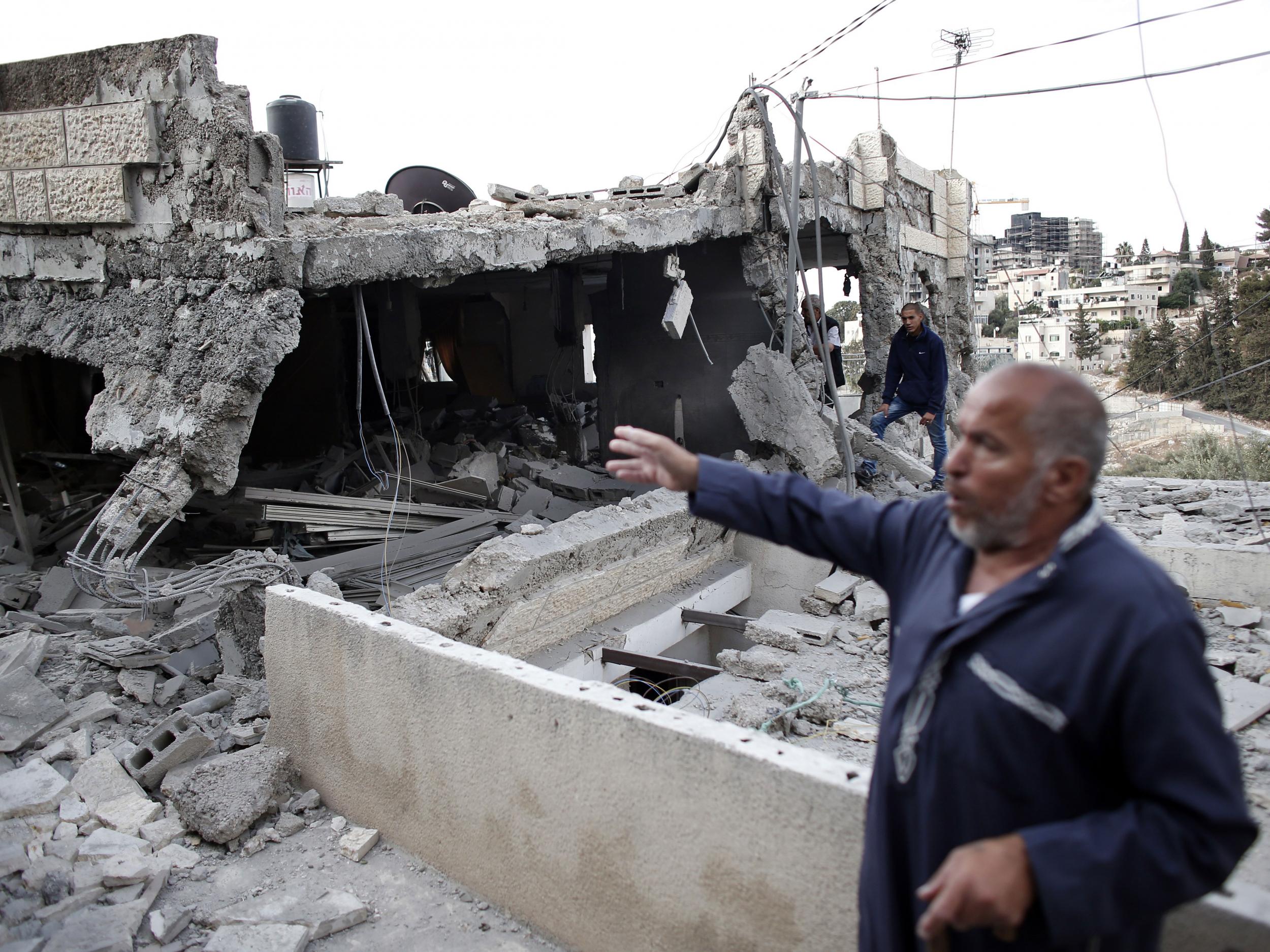Israeli security forces leave '11 Palestinians homeless after demolishing their homes'
House demolitions in the West Bank and the Gaza strip began in 1967. Their official objective is to deter Palestinians from carrying out attacks against Israeli citizens or soldiers

Israeli security forces have been accused of making 11 Palestinians, including seven children, homeless after demolishing their homes as punishment for attacks committed by their relatives.
Authorities allegedly blew up two apartments in the east Jerusalem neighbourhood of Jabal al-Mukabber on Tuesday, according to the Israeli human rights group B’Tselem.
These reportedly included the home of Nadia Abu al-Jamal, the wife of Ghassan Abu al-Jamal, who was shot by police after killing four Rabbis and wounding seven other civilians when he attacked a synagogue in Jerusalem’s Har Nof neighbourhood last November.
When demolishing the unit, authorties allegedly destroyed an adjacent apartment on the same floor, according to B’Tselem, despite Israel’s pledge to the Supreme Court to do “everything in its power to prevent damage to the adjacent units.”
The adjacent apartment was believed to be the home of Jamal’s brother, Mu’awaiyah al-Jamal, who lived there with his wife and three children.
Israeli security forces are also accused of demolishing another home in Jabel al-Mudabber, belonging to the family of Muhammad Ja’abis, who killed an Israeli civilian in August 2014 by running him over with a car. Ja’abis was later shot by police.
The blast is also alleged to have caused extensive damage to the bottom floor of the house, where Ja’abis’s brother lived with his wife and four children. Other near-by houses occupied by more of Ja'abis's siblings are also thought to have been damaged.
Israel has employed a policy of house demolitions in the West Bank and the Gaza strip since 1967.
The official objective of house demolitions is to deter Palestinians from carrying out attacks by harming the relatives of those suspected of being involved in attacks against Israeli citizens or soldiers.
The people who often bear the brunt of these demolitions, however, are “relatives – including women, the elderly, and children – whom Israel does not suspect of involvement in any offense,” according to B’Tselem.
“In the vast majority of cases, the person whose actions prompted the demolition was not even living in the house at the time of the demolition,” they add.
House demolitions resumed in July 2014, after three yeshiva students were kidnapped and killed in Bethlehem earlier that year. Demolitions had previously been halted by the military in 2005.
A 2004 research project by B’Tselem suggested around half the homes demolished between 2001 and 2014 by the Israeli government were never alleged to house suspected attackers.
These demolitions resulted in 1,286 people losing their homes, a figure well beyond the number of those living in the homes stated for demolition, according to B’Tselem.
B’Tselem say: “The policy of demolishing the family homes of attackers constitutes collective punishment, which is prohibited under international law.”
“Demolishing or sealing a home is a draconian, vindictive measure directed at entire families who have done nothing and are suspected of nothing.”
Subscribe to Independent Premium to bookmark this article
Want to bookmark your favourite articles and stories to read or reference later? Start your Independent Premium subscription today.
